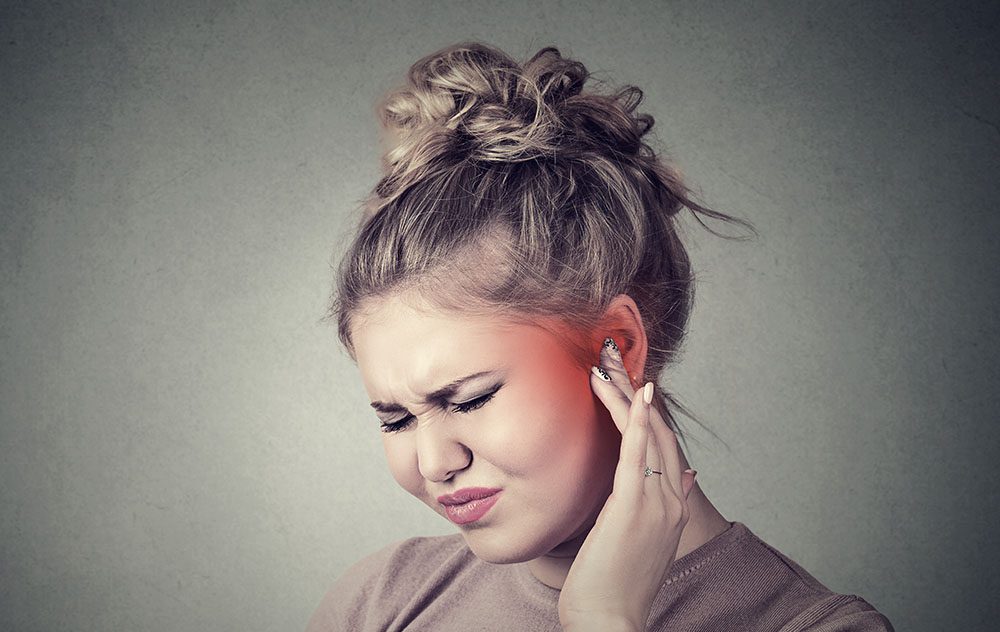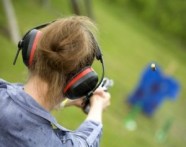How Wearable Tech is Merging with Hearing Aids
Decades of research have revealed a clear link between hearing loss and

By: admin | January 24, 2017
It’s a new year, and a new you. No matter your hearing status – whether you currently use hearing aids, suspect you may have hearing loss or have perfectly healthy ears – you can start your new year right by vowing to fight hearing loss and protect your hearing.

According to 2016 statistics from the National Institute on Deafness and Other Communication Disorders (NIDCD), 15 percent of all American adults report having some trouble hearing – that’s almost 38 million people over the age of 18. Of Americans over the age of 12, 13 percent have hearing loss in both ears. And, a whopping 28 million people in the United States could benefit from wearing hearing aids, but the vast majority of those never try them.
Though age is a factor, noise-induced hearing loss among people of all ages has become a concerning issue. More than five million children in the U.S. between the ages of 6 and 19, are affected by hearing loss caused by loud noises. This could be due to extremely loud toys, exposure to loud music through ear buds or recreation activities like hunting or riding snowmobiles, for example.
If you don’t have a hearing loss, it might be difficult to imagine the impact it can have on quality of life. But even a minor hearing loss, left uncorrected, can lead to lack of confidence, damaged relationships, limited career opportunities, difficulty hearing conversations and feeling left out – all of which can lead to social withdrawal and depression.
Also, having hearing loss has a possible impact on safety. If you have hearing loss, you might not hear smoke alarms or approaching traffic, for example.
One of the most common types of hearing loss is noise-induced hearing loss (NIHL), and it is almost completely preventable. While you have healthy hearing, do your best to protect your ears from excessive noise every chance you get.
We often unintentionally expose ourselves to noisy situations without protection. Here are some everyday activities and times when you could be putting your hearing health at risk:
Sound is measured by decibels, and being exposed to sounds above 85 decibels is potentially damaging to hearing. All of the above sounds are much higher than 85 decibels. If you’re unsure how loud is too loud, do the “lawnmower test.” If you think the sounds you are exposed to are as loud – or louder than – a lawnmower, it’s important to protect your ears and limit how long you are exposed to the noises. You can also use the technology of your smartphone to help you measure the loudness of your environment with several easy-to-use apps.
Educate others about noise-induced hearing loss. If you’re attending a noisy event or recreational activity with a friend, bring an extra pair of earplugs for him or her to wear.
Also, if you have children who listen to music on a personal device, purchase ear buds or headphones that have a safe sound limit. When giving gifts to children, avoid those that emit loud sounds and opt for quiet toys instead. The Sight and Hearing Association produces an annual list before the holidays each year, which makes note of the top offenders per their testing.
This is one time that being a quitter will make you a winner. Mounting research suggests that smoking leads to an increased risk of hearing loss. Smoking causes constrictions in your blood vessels, disrupting circulation and cutting off oxygen to certain parts of the body. This can prevent the body from being able to repair damaged hair cells in the ear, leading to permanent hearing damage.
Additionally, a 2011 study by researchers at the NYU School of Medicine found that exposure to secondhand smoke can lead to hearing loss in children and teenagers. So if you quit smoking, you’ll be protecting not only yourself, but also those you care about. Even if you have smoked for decades, it is never too late to benefit from quitting this unhealthy habit.
If you know the signs of hearing loss, you may be more likely to get your ears checked and to encourage others who are showing the symptoms to get their hearing checked.
If you are living with hearing loss, you can prevent it from getting worse. Beyond that, there is so much you can do this new year to improve your hearing.
Find a local hearing healthcare professional who can check your hearing. A hearing test can reveal exactly what type and degree of hearing loss you have. Your hearing health professional can find the best solutions for you, including hearing aids or other assistive listening devices.
If you’ve been putting off getting hearing aids, maybe this is the year to try them out. Many clinics offer no-obligation trial periods so you can experience hearing aids firsthand and ensure you have the best solution before committing financially. You can also try assistive listening devices like personal amplifiers which can be great for one-on-one or small group chats.
Make better hearing and communication a goal for the new year.
A new year brings a fresh start and an opportunity to leave bad habits and regrets behind. Addressing health concerns such as that pesky hearing loss can be a springboard for many other positive changes in your life.
Reprinted with permission from www.healthyhearing.com. Please visit our site for the original article: https://www.healthyhearing.com/report/51733-Healthy-habits-to-fight-hearing-loss

Decades of research have revealed a clear link between hearing loss and
By: admin | March 26, 2024

Getting your hearing aid fitted can take anywhere from 30 minutes to an
By: admin | December 11, 2023

Finding the right hearing instrument specialist (HIS) is one of the most
By: admin | November 12, 2023
